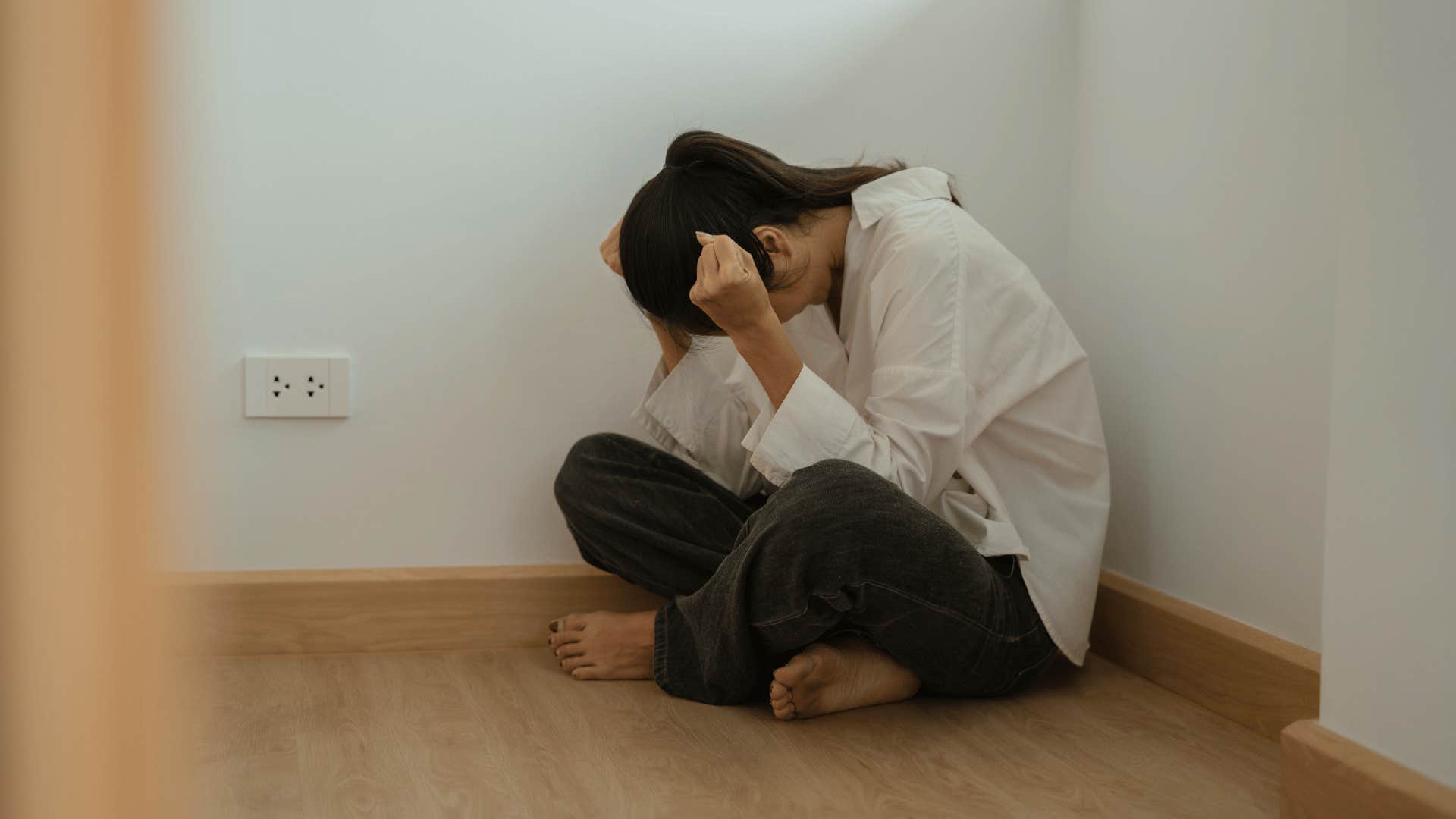People Who Do These 13 Things Think With Their Hearts, Not Their Heads
The heart and mind become compelling once they learn to work together.
 Natalia Blauth | Unsplash
Natalia Blauth | Unsplash Some things are meant to be carefree, and if you have good coping skills that should follow your heart and not end as planned, you can use your mind to figure out a way to read directly and ultimately do both follow your mind and your heart. Letting your brain keep you in line while you follow your heart can also help you avoid making poor or risky choices that could adversely affect your life or career.
While often wanting to go in different directions, the heart and mind can become compelling once they learn to work together. Sometimes, your heart wants to do something your head knows isn't the best idea. But yet, you ignore reason and think with your heart.
People who do these things think with their hearts, not their heads:
1. You notice that rejection crushes you
 THICHA SATAPITANON / Shutterstock
THICHA SATAPITANON / Shutterstock
After a breakup, you can’t see the silver lining. All you can think about is how much you miss them, how badly you want to touch them. You ignore your brain when it tells you that the breakup was a good thing and listen to your heart, which is throbbing in pain.
2. You can’t explain why you’re drawn to certain people
 NDAB Creativity / Shutterstock
NDAB Creativity / Shutterstock
When you try to explain why you’re crushing on someone, there’s no solid explanation. It isn’t necessarily because he’s smart funny or hot. He just makes you feel ... happy.
A 2023 American Psychological Association study explained that the inability to explain why one is drawn to certain people often stems from a combination of factors, including subconscious influences, past experiences, biological cues, and the similarity-attraction effect, whereby one is naturally drawn to people with similar values and interests, and the role of proximity and familiarity. All of these factors can operate below one's conscious awareness.
3. You love the idea of love
 Findi Hardianty / Shutterstock
Findi Hardianty / Shutterstock
You’re a hopeless romantic. Obsessed with roses and chocolates and cliches. You don’t care if everyone else thinks it’s stupid. You think it’s sweet.
4. You spill all your secrets
 pathdoc / Shutterstock
pathdoc / Shutterstock
You’re too trusting. As soon as you make a friend, you reveal everything. And when they leave, it’s unsettling to realize that a semi-stranger is walking around with all of your secrets.
Keeping secrets can lead to significant stress, feelings of isolation, and a burden on the mind, so revealing them can provide relief and be a way to seek social support, especially when the secret is perceived as morally wrong or harmful. Research by the British Psychological Society concluded that this is often linked to the desire to feel closer to the person confiding in or to even act as a form of "moral punishment" against the person holding the secret.
5. You give out second chances
 simona pilolla 2 / Shutterstock
simona pilolla 2 / Shutterstock
You know you shouldn’t forgive your ex. You know they’re toxic. But when they ask for forgiveness, you give it to them. You care too much to push them away.
6. You have strong gut feelings
 fizkes / Shutterstock
fizkes / Shutterstock
You can’t explain them. There’s no logical explanation for them. But, somehow, you’re usually right.
A Frontiers in Psychology study revealed that our brains constantly scan for patterns based on past experiences. When we encounter a similar pattern in the present, it triggers a subconscious recognition that manifests as a gut feeling, even if we can't consciously identify the reason.
7. You’ve been called dramatic
 Gorodenkoff / Shutterstock
Gorodenkoff / Shutterstock
When you’re happy, you can’t keep your excitement inside. And when you’re sad, the tears drop for hours. You experience extreme emotions. And they can change on a dime.
8. You take leaps of faith
 Ground Picture / Shutterstock
Ground Picture / Shutterstock
You don’t think things through. If you feel like something (or someone) would make you happy, you leap without worrying about any of the potential repercussions. You truly enjoy the moment. Taking a leap of faith primarily focuses on uncertainty tolerance and how individuals navigate situations where they must act despite lacking complete information.
This often involves balancing risk-taking and decision-making based on limited evidence or trust in an unknown outcome. A study published by Social Psychological and Personality Science found this is usually linked to concepts like self-efficacy, optimism bias, and the role of personality traits like openness to experience.
9. You believe in signs
 Pheelings media / Shutterstock
Pheelings media / Shutterstock
Signs that you should contact your ex. Signs that something bad is going to happen. Signs that your loved ones are speaking to you from beyond the grave.
10. You don’t have many regrets
 Yuri A / Shutterstock
Yuri A / Shutterstock
You’re glad you dated your ex, even though he cheated on you. You’re glad you made friends with your BFF, even though she moved far away. You don’t let unhappy endings tarnish your happy memories.
While it's nearly impossible to have no regrets, individuals who experience fewer regrets tend to have developed effective coping mechanisms for dealing with past decisions. These mechanisms often involve focusing on the positive aspects of their choices, utilizing self-compassion, and accepting that some uncertainties are unavoidable in life.
Research published in Psychological Science also indicates that understanding the forgone alternative can significantly reduce regret, as knowing the potential outcomes of unchosen paths can lessen the perceived missed opportunity.
11. You always do the right thing
 fizkes / Shutterstock
fizkes / Shutterstock
Even though your common sense is telling you to take the easy road, to be a little sneaky to get what you want, you can’t stomach the thought of lying, cheating, or stealing. You wouldn’t be able to live with the guilt.
12. You’re a crier
 simona pilolla 2 / Shutterstock
simona pilolla 2 / Shutterstock
If you hear a sickening news story, you don’t just shake your head and comment about what a travesty it is. You feel your heartbreak for the victims. And sometimes, you even cry for them.
A 2020 study by Frontiers in Psychology has shown that crying can serve as a means of social communication, eliciting empathy and support from others while potentially revealing underlying vulnerabilities, depending on the context and cultural norms. However, the perception of a "crier" can vary based on factors like gender and the situation, with some individuals being judged negatively for crying frequently.
13. You care more about others than yourself
 Stock Unit / Shutterstock
Stock Unit / Shutterstock
You think with your heart, but it isn’t your heart that you’re worried about. It’s everyone else’s heart. You don’t want them to be sad. You want to bring them joy — even if that means you’re forced to suffer.
Holly Riordan has spent seven years writing for Thought Catalog and Collective World. She has amassed close to a billion reads on her articles about modern relationships, mental health, grief, and astrology. She is also the author of the twisty thriller, The Guilty Twin, and the science fiction novel, Forget Her.

